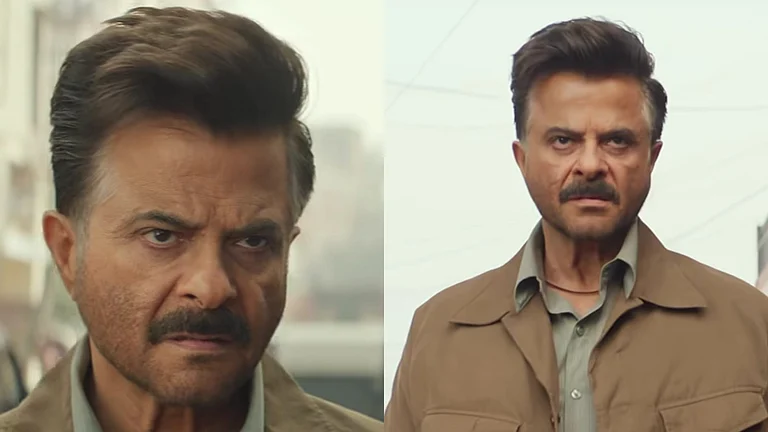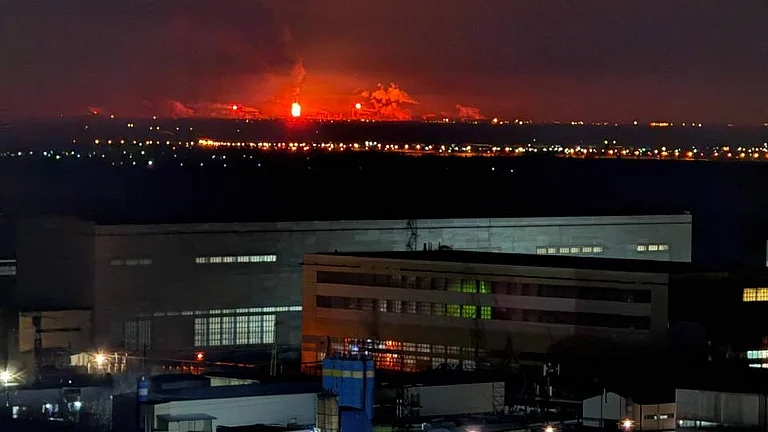The 9th edition of the Kalinga Literary Festival (KLF) held between 24 and 26 February in the city of Bhubaneshwar saw a stellar line-up of nearly 80 sessions spread across three days, covering a diverse array of topics, themes and subjects. The festival’s main attractions were award-winning authors and thinkers, in both fiction and non-fiction, in multiple languages including English, Hindi, Odia, Maithili, Nepali, Urdu, Sinhalese, Bengali, Japanese and Italian. The festival opened with the Honourable Governor of Odisha, Professor Ganeshi Lal felicitating Dr Ramesh Prasad Panigrahi and Geetanjali Shree, two literary powerhouses in Odia theatre and English fiction respectively. In his keynote address, Prof. Lal stressed on the ways in which “literature is a journey from the self to the non-self,” setting the tone for the three-day-long celebration of literariness where writers mulled over the place of literature and art in the world today. Presiding over the KLF awards ceremony—where writers were felicitated in 20 categories—was 2014 Nobel Peace Prize winner Kailash Satyarthi, who, in a special video address, emphasised the need for compassion in a globalised world with India leading the way. Satyarthi was also felicitated with the KLF Non-fiction Book Award for his book, Tum Pehle Kyon Nahi Aaye, a non-fiction book published by Rajkamal Prakashan in 2022.
Dr Panigrahi received the Kalinga Literary Award (Odia) for his formidable body of work — 83 plays written during his career as an educationist, playwright, theatre director and art critic. He was also a panellist in the session on ‘Performativity in Contemporary Odia plays’ along with Rabinarayan Dash, Purushottam Mishra, Bijaya Satapathy and Nibedita Jena unpacking pressing issues in contemporary Odia theatre. The Kalinga International Literary Award (English & Hindi language) and a cash prize of Rs 1 lakh were awarded to Geetanjali Shree, whose novel Ret Samadhi, translated into English as Tomb of Sand by Daisy Rockwell, won the International Booker Prize last year. In a discussion of her book at the KLF, Shree read out excerpts from Ret Samadhi to a packed house and also discussed her work ethic, the ‘stream of consciousness' style of writing, her views on the translations of her book as well as proffered writing advice to young novelists.
Book lovers of all ages, who thronged to the KLF 2023, could choose between an array of sessions on book discussions, translation, politics, history, dance, comics, digital literature, environment and ecology, Bollywood and southern films, the future of mainstream media and multilingual poetry. New books were also released at the event, such as Dr Ujjwala Palsuley’s Cambodia: Decoding Khmer Architecture and Nepali feminist writer, Ranjana Niraula’s Rhythm of Pain. With the central theme of the KLF 2023 being ‘India and the World’, it was no surprise that the sessions were curated in a way that foregrounded not only India’s relationship with her neighbours and the world but also the country’s relationship with its own history. For instance, Indian economist and popular historian Sanjeev Sanyal discussed his book, Revolutionaries: The Other Story of How India Won its Freedom which highlights the oft-neglected contributions of freedom fighters such as Bhaga Jatin, Bhagat Singh and Subhash Chandra Bose who chose methods of armed resistance—not non-violence—as a strategy towards independence from colonial rule. Another session, ‘Revisiting History: Rewriting, Retelling and Reinterpreting’ saw panellists Dr YSR Murthy, Yatish Kumar, Shalini Sawkar and others engaged in a healthy, vibrant debate on the ways in which Indian history needed to be told in a ‘post-truth’ world where access to information and the production of knowledge as ‘content’ was no longer as restricted as it once was.

History and historiography became a focus once again in the session on ‘Spirituality, Modernity and Literature’ with celebrity fiction writer Ashwin Sanghi unpacking the many issues concerning Sanatana Dharma and its relationship with India’s history as well as its place in the contemporary moment. Also, straddling religion and history was Monarch of the Blue Mountain, a documentary exploring ‘Shri Jagannath consciousness’ in India and beyond. The film was screened at the KLF with its director Dr Piyush Roy discussing his experience of making the film with Dr Pushkarni Panchmukhi of RV University and Priyanka Sinha Jha, senior journalist and writer.

KLF 2023 also placed a much-needed spotlight on issues pertaining to ecology and the environment as they were represented in literature. For instance, the session on ‘Himalayas and the World’ saw historian cum fieldworker, Shekar Pathak, discussing his book The Chipko Movement: A People’s History as a way of commemorating 50 years of the non-violent, women-led protests of the 1970s in Uttarakhand that had grabbed international attention. Issues pertaining to Adivasis in the face of neoliberal development were also brought to the fore in the session ‘भूमंडलीकरण के २३ साल: साहहत्य और समाज के बदलते रिश्ते (23 years of Globalisation: Changing Relationships between Literature and Society). One of the panellists, novelist Madhu Kankariya who had won the 2021 Bihar Puraskar for Hum Yahan The, her 2018 novel based on the struggles of Adivasis in Jharkhand, spoke passionately of the fate of Indian indigenous peoples in the face of unfettered capitalism, to rousing applause.
The Kalinga Literary Festival 2023 saw a healthy mix of fiction and non-fiction writers, poets and theatre practitioners, publishers, artists, media personnel, diplomats, thinkers and subject experts engage in convivial debates about the place of literature in a world where reading has been taken over by audio-visual content. With an impressive turnout of young college-going students as well as book-loving septuagenarians, the KLF has, without a doubt, secured its place in Odisha’s, as well as India’s, calendar of literature festivals.


























